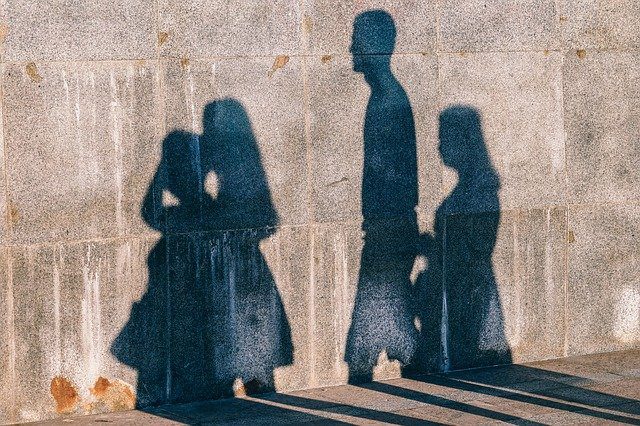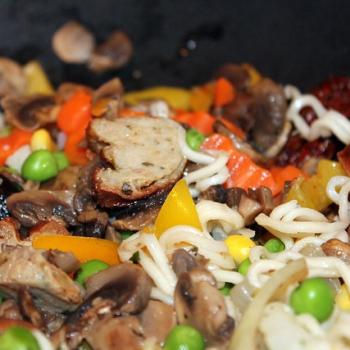
Just a warning to others who have been traumatized by diets, I’m going to describe some disordered eating in detail today. I’ll try to write something a little less nasty tomorrow.
My facebook page has randomly been suggesting “memories” to me lately. I don’t know how it decides which memories are important.
The memories it’s giving me now are from 2015. They aren’t nice. They’re memories of when my odd hodgepodge of chronic illness symptoms were flaring all at once, tormenting me, and the doctors were running a barrage of tests to find out why. In the end they didn’t diagnose me as much of anything other than fat, and they didn’t prescribe much in the way of treatment other than going on a diet. It took five more years to get a diagnosis.
I’ve been sick in one way or another for most of my life. I’ve been criticized and blamed for being fat since puberty. It was traumatic to be ignored and gaslit for being sick. It was traumatic to be mocked and blamed for being fat. I didn’t want to remember what that was like.
When I got sick from all the memories, I left the computer and went for a long walk in my neighborhood. The eerie bright November sunshine stretched my shadow out across the sidewalk, tall, lanky, willowy. She looked like the Mary I’d always tried and failed to be, because I thought if I became that person, people would like me– or, if they couldn’t like me, they would at least leave me alone.
No one would leave me alone about my weight gain, from the moment I started getting pudgy when I was about ten years old and especially when I swelled up like a balloon between my eleventh and twelfth birthday. My family and the children I knew were not kind about it.
I did everything I could to try to make them happy with me.
I was put on Weight Watchers several times in my teenage years, and I worked hard at Weight Watchers. I’d nibble a few bites at breakfast and lunch and drink diet soda to stave off the hunger pangs, saving up my “points” for a big dinner– and at dinner, my mother and siblings made fun of me for eating too much and mocked me if I’d gained weight that week. Mother and I took long fast walks around and around and around the blocks of our neighborhood, trying to burn off enough “points” to earn a snack. Another time I went on the “fat and fiber” diet, where you can only eat a tiny amount of fat per day but can have as many carbohydrates as you want, and I ate popsicles to feel full. There was also some convoluted diet where the amount of fiber in a food canceled out a certain number of calories, so I’d eat gigantic bowls of All Bran cereal with cream and Cool Whip and chocolate chips on them– not realizing that I had a gluten sensitivity, and was shredding my bowels. There was another where you replaced all your “white” foods like potatoes, sugar and rice with “brown” foods like yams, honey and brown rice, and I tried to like yams and brown rice. I did not lose weight. And my family did not leave me alone. They made fun of the bran cereal, the soda and the popsicles. They always made fun.
At one point my mother dragged me to meetings where we learned about a new diet plan on which we would eat only the amount of food we could fit loosely into a coffee mug, and only when we were so hungry that our stomachs were growling. We were assured that it was normal that our stomachs wouldn’t start to growl at first, and we’d have to fast for days until we learned to feel satisfied on just that fist-sized repast. But even that wasn’t enough to lose weight– to lose weight, you had to leave a few bites of the tiny meal uneaten, as an offering to your guardian angel.
I did not lose weight, no matter how many oblations I made to my guardian angel. And this was presented to me as my fault for exaggerating my hunger.
This all dovetailed perfectly with my spiritually abusive time in the Charismatic Renewal. I prayed every night for forgiveness of my sin of gluttony, and I begged God to make me pretty, but He didn’t.
I tried to make myself throw up, but my hand was puffy with retained water and wouldn’t fit down my throat. And I hated myself for that too.
I left home and started over again in Steubenville, eating tiny meals in the cafeteria at the university. I couldn’t lose weight. My weird hodgepodge of bizarre, sometimes disabling health symptoms made me sicker and sicker as I got older. I had two emergency surgeries and then lost my gall bladder to a third surgery in a short space of time. My subsequent fatigue and pain were diagnosed, and dismissed, as chronic fatigue syndrome and fibromyalgia, even when treatments that are supposed to work on fibromyalgia didn’t have an effect.
I conceived my Rosie on a weird week of the month when the NFP chart informed me I wasn’t fertile. She was born, in an agonizing abusive childbirth that left me with PTSD.
After Rosie was born, I didn’t lose an ounce of the pregnancy weight. Ladies at church congratulated me for getting pregnant again so soon. Total strangers shouted insults at me from car windows when I tried to go jogging. Doctors dismissed my increasingly alarming symptoms as just being too fat. No matter what I did to get them to listen as my monthly cycles went more and more out of control with terrible pain during the ovulation window and traumatic eight or fourteen-week bouts of amenorrhea that I mistook for pregnancies, they said it was because I was obese and needed to go on a diet.
Somewhere in all of this, I became a writer.
I wrote a whole book on my odd life with a mysterious chronic illness. And between the time that book was written and the time it was published, I happened to see a new doctor. It happened to be just after I’d shed a huge amount of hair. I happened to mention my erratic cycles even though that wasn’t the symptom I was consulting him about. And he happened to be certified in naprotechnology. And that was when I received a new diagnosis: in addition to, or masquerading as, fibromyalgia, I had inflammatory polycystic ovary syndrome. PCOS makes women gain enormous amounts of weight. It makes it hard for us to metabolize carbohydrates. It causes infertility and also ovulation at weird unpredictable times. It causes or is comorbid with a host of other chronic conditions, and it isn’t the sick person’s fault. It’s genetic.
None of this had been my fault.
All this time, all this effort, all this self-loathing, and it wasn’t my fault.
The doctor put me on medication and a special way of eating that’s shown some promise in controlling the symptoms of PCOS; I also adjusted my supplements and started taking things that help PCOS. That was when my water retention started deflating. Within a few days, I could clearly see the veins on the backs of my hands for the first time since I was twelve. Within a few weeks, I had more energy than I’d had since before my surgeries. Within a few months, I could fit my fingers into rings for the first time since I got pregnant with Rose. I’ve lost a few clothing sizes in the eleven months since I’ve been in treatment, though I’ll always be plump and chronically ill. I’ll never look like a model or a stretched out shadow.
And this doesn’t make me a better or more beautiful person than I was when I was a larger person. It’s just something that happened as my chronic illness was in proper treatment.
This doesn’t justify anything that was done to me when I was bigger. It doesn’t make me more worthy of love than I was when I was desperately trying to shrink myself. It’s just that somebody finally listened to me and started actually fixing what was wrong.
This all brings me to this week, when went for a walk, and I stared at the shadow stretched out on the sidewalk, and didn’t recognize myself.
And I realized that I don’t know myself. I know the person I’ve desperately tried to be, so that people would like me or at least leave me alone. But I don’t know the person I’ve been along the way. I’ve hated her without cause because so many others did.
I decided to find out who that person is.
I’m going to begin right now.
Image via Pixabay
Mary Pezzulo is the author of Meditations on the Way of the Cross and Stumbling into Grace: How We Meet God in Tiny Works of Mercy.
Steel Magnificat operates almost entirely on tips. To tip the author, visit our donate page.













